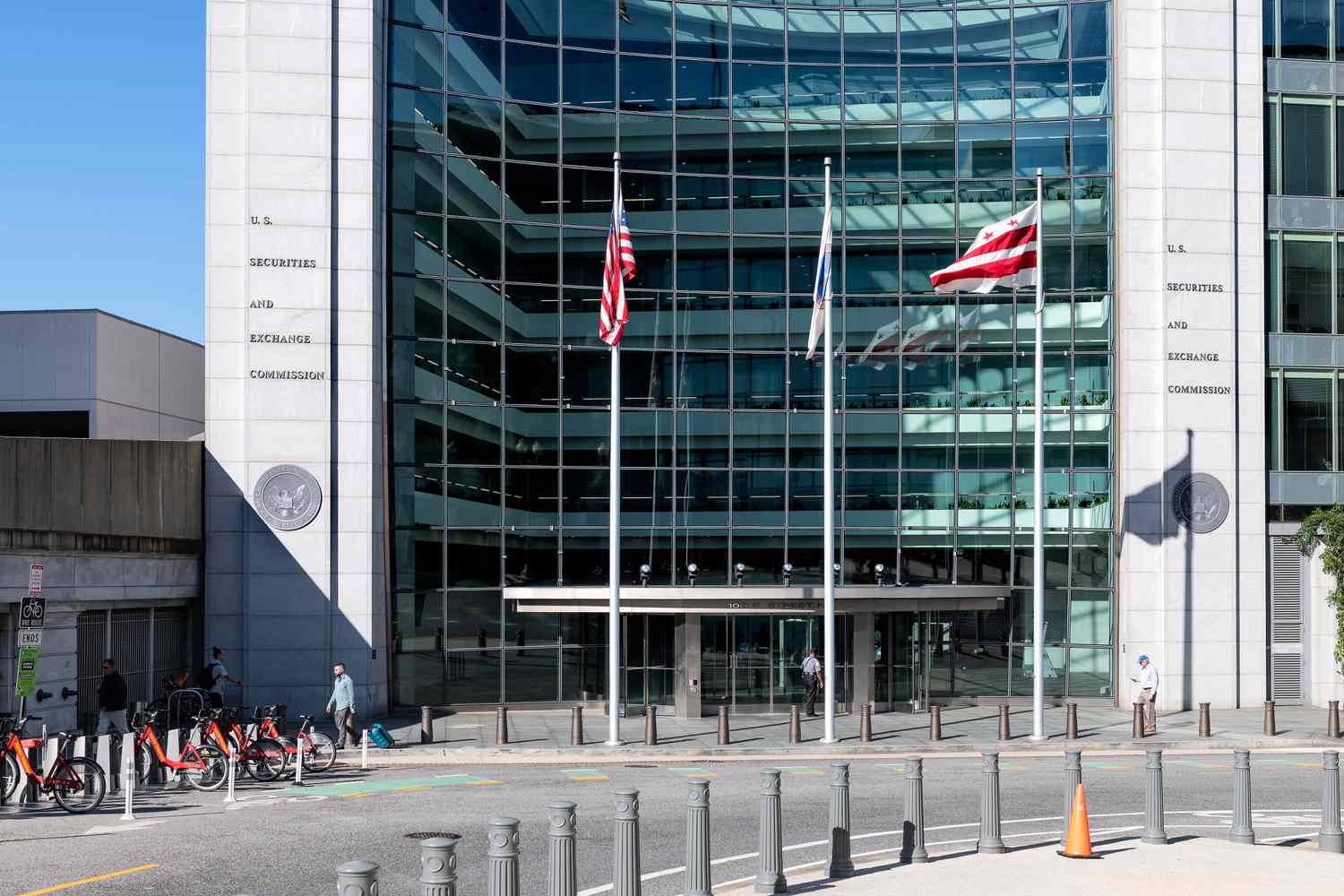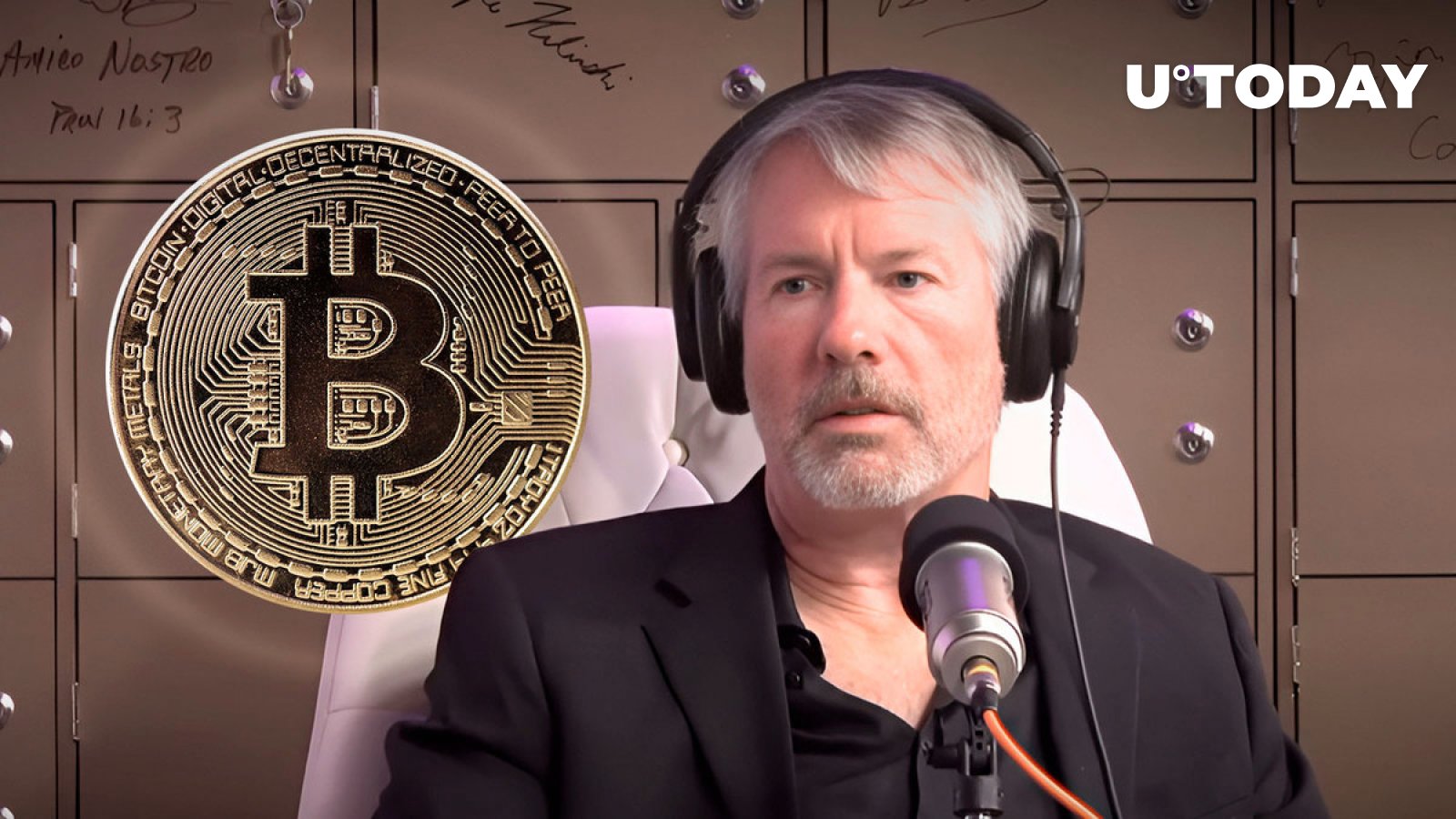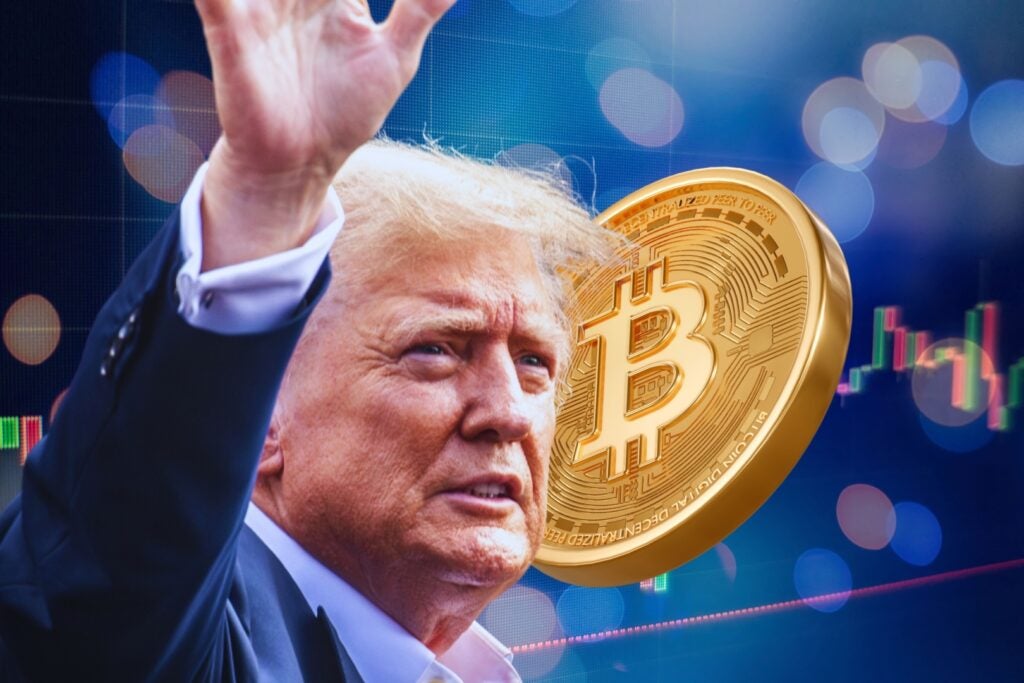Bitcoin
How SEC Regs Will Change Cryptocurrency Markets

Following the bankruptcies of FTX, BlockFi, Voyager Digital, and other cryptocurrency platforms, the U.S. Securities and Exchange Commission (SEC) ratcheted up its enforcement of anti-fraud and securities regulations in the crypto scene. The results suggest that finding cases wasn’t difficult: in 2023 alone, the SEC took 26 cryptocurrency enforcement actions.
Critics in the industry charge that these moves are overreach. But officials at the financial watchdog say the crypto sector has forced its hand. The SEC says it made these and other recent crypto-related moves to prevent fraud, reduce market manipulation, and force more disclosure from cryptocurrency holders and exchanges. “We have worked thoughtfully and incrementally in this space,” SEC enforcement division director Gurbir Grewal said at a Rutgers University event in mid-2023. After initial investigations and civil actions, “you’d also see compliance” by others, “but we’re not seeing that in this space, so we had to change strategies.”
Below, we guide you through the powers the SEC has over cryptocurrencies, how it has used that authority thus far, and what its stepped-up enforcement within this space means for the future of these digital assets.
Key Takeaways
- The U.S. Securities and Exchange Commission (SEC) has scrutinized many digital currencies as unregistered securities.
- Many crypto issuers are already subject to SEC enforcement.
- SEC Chair Gary Gensler has called on certain crypto exchanges to register with the agency as securities trading platforms.
- Stablecoins and other tokens are also under greater regulatory scrutiny.
- The SEC has brought dozens of enforcement actions against actors in the crypto space, leading its chair to conclude the industry is “rife with abuse.”
Advantages of Cryptocurrency
One reason for cryptocurrency’s enduring popularity is its promise to decentralize money and trade. According to proponents, digital currencies might lead to less control and regulation by entities like the SEC, central banks, and other political institutions. Advocates argue that this, in turn, will lead to a more equitable or “democratic” financial ecosystem. Also, blockchain encourages trust among those in the market without needing external enforcement, as with fiat currencies, since its underlying technology can’t be changed and is transparent to those with the expertise.
There are billions of unbanked or underbanked individuals globally estranged from the conventional banking system because of geographical remoteness or lack of documentation. Cryptocurrencies could allow these individuals to make transactions, save, and access credit. In addition, crypto tends to have lower transaction fees than traditional banking systems, a benefit for individuals and businesses.
That cryptocurrencies offer a new asset class also entices many investors. The meteoric rise in the value of some cryptocurrencies has provided prospects for solid returns, albeit with a lot of volatility. In times of economic uncertainty or lower interest rates, the cryptocurrency market has been considered the place to invest when diversifying a portfolio and hedging against traditional financial market risks.
Reasons for SEC Enforcement of Cryptocurrencies
SEC Chair Gary Gensler has said that some of the major crypto exchanges “are likely trading securities” and thus need to register with the SEC. “When a new technology comes along,” Gensler said, “our existing laws don’t just go away.” Gensler has also urged more enforcement of stablecoins and other crypto tokens.
In 2022, the SEC increased the size of its Cyber Unit by 66%, from 30 to 50 officials, and renamed it the Crypto Assets and Cyber Unit as it expanded its crypto enforcement efforts. The many cases brought after this expansion suggest the unit has its work cut out for it. Notoriously a crypto-sceptic, Gensler has repeatedly told interviewers since the January 2024 launch of spot bitcoin exchange-traded funds (ETFs) that “the whole field is rife with abuses and fraud.”
Cryptocurrencies come under the SEC’s authority if they meet the Howey test. This standard is derived from a 1946 Supreme Court case about orange groves and has since been used to differentiate the sale of securities from other purchases. The court ruled that a contract falls under the SEC’s jurisdiction if someone invests “money in a common enterprise and is led to expect profits solely from the efforts of the promoter or a third party.”
Regulators want to increase protections for investors, keep markets stable, and bring more transparency to a rapidly evolving digital landscape. Here’s a breakdown of the rationale behind the SEC stepping up its enforcement over cases involving cryptocurrencies:
Investor Protection
- Fraud prevention: Cryptocurrency markets are still relatively new and have been associated with many frauds and scams. SEC enforcement could deter fraud and protect investors from bad actors.
- Disclosure standards: By regulating crypto markets under securities laws, the SEC is hoping to make these enterprises provide more accurate and thorough information to the public, enabling investors to make more informed decisions.
Market Integrity
- Price manipulation: The anonymity and lack of regulation in cryptocurrency markets make them susceptible to manipulative practices. SEC oversight could help curb such practices to secure fair prices.
- Market surveillance: Monitoring the crypto markets for unusual activities could help maintain market integrity and investor trust.
Legitimacy and Adoption
- Legal framework: Falling under the SEC’s regulations could legitimize cryptocurrency enterprises and attract more traditional investors and institutions, potentially leading to broader adoption.
- Innovation and competition: By creating a level playing field, SEC enforcement could encourage innovation and competition, which are essential for the crypto sector’s long-term sustainability and growth.
- Money laundering and terrorism financing: By enforcing anti-money laundering (AML) and counterterrorism financing (CTF) regulations, the SEC and other agencies could address two major public concerns about cryptocurrencies.
Regulatory Clarity
- Defining boundaries: The SEC’s involvement could help determine the boundaries between traditional securities and crypto assets, providing much-needed clarity for entrepreneurs and investors.
- Compliance standards: Establishing compliance standards can help crypto enterprises follow widely known regulations and cut legal uncertainties.
- Cross-border collaboration: Cryptocurrencies are without borders, so international cooperation and enforcement could help address challenges common to regulators worldwide.
The Howey Test Meets Crypto
The Howey test is a U.S. legal principle for determining whether a financial arrangement qualifies as an investment contract and is subject to regulatory requirements. The Howey test has become a cornerstone in the SEC’s assessment of various financial instruments and arrangements, including cryptocurrencies and initial coin offerings (ICOs).
The test stems from SEC v. W.J. Howey Co., a 1946 U.S. Supreme Court decision establishing the criteria. The Howey test has become a central one for those in the financial sector, including the burgeoning cryptocurrency space, since it decides what, if any, regulations apply to specific entities. Here are the four criteria under Howey:
- Money is invested: Something of value is put at stake.
- There is a common enterprise: The investment must be in a common enterprise, although courts have had varied interpretations of what that means.
- Those involved hope to profit: At least one of the parties must anticipate potential profits from the investment. This is typically where the efforts of a third party—the promoter or a third party affiliated with the promoter—significantly affect the value of the investment.
- The profits come from the work of another: Essentially, investors are reliant on the actions of others to generate a return on the value they put in.
For example, suppose you invest in a real estate investment trust (REIT), which pools money to buy, manage, and sell real estate. The REIT is managed by a team of real estate professionals, the third party under the Howey test. It decides which properties to buy, how to manage, and when to sell them. Your expectation of a profit largely depends on the real estate expertise and the efforts of this management team. The REIT meets the Howey test criteria because 1) you invested money, 2) your investment is in a common enterprise (the REIT), 3) you set out to profit, and 4) the third party does the work.
So, once the SEC determines a cryptocurrency or token is a security and falls under its regulatory purview, this has far-reaching implications. The issuer must then follow SEC regulations that come with extensive reporting and transparency requirements.
In January 2024, the SEC approved the first 11 spot bitcoin ETFs for trading in the U.S. market, representing the first publicly traded investment funds that were allowed to directly hold cryptocurrencies in their portfolio. Previously, funds could only gain exposure to cryptocurrencies through derivatives, such as futures contracts.
Potential SEC Actions on Crypto
The SEC has a broad set of regulatory tools that can be tailored to address cryptocurrencies’ unique characteristics and challenges. Here are the types of regulations the SEC could adapt to the crypto market:
- Registration requirements: It could mandate the registration of cryptocurrency exchanges and tokens. This would confirm that these platforms and their offerings adhere to the disclosure, reporting, and operational standards of traditional financial entities.
- Disclosure standards: Establishing robust transparency rules could help confirm that crypto enterprises give investors comprehensive and accurate information. This includes publishing details about financials, business operations, and the risks associated with the crypto assets they deal in.
- Anti-fraud and price manipulation measures: The SEC’s enforcement of anti-fraud measures to deter deceptive practices and safeguard the integrity of the crypto markets. This includes rules to curb practices like wash trading and pump-and-dump schemes.
- Investor education and protection initiatives: It could broaden its efforts to apprise investors of the unique risks associated with cryptocurrencies. The SEC could also put in place ways to address investor crypto-related grievances and disputes to boost investor confidence in these markets.
- Cybersecurity regulations: Given the digital nature of cryptocurrencies, imposing rigorous cybersecurity regulations on crypto platforms could help protect these markets against hacks and data breaches.
- AML and CTF regulations: Collaborating with other regulators to enforce AML and CTF regulations to address some of the public security concerns about cryptocurrencies.
- Market surveillance: Monitoring trading activities could help detect irregular activities early, which would help enforce a fair and transparent market.
- Global regulatory cooperation: Given the borderless nature of cryptocurrencies, forging alliances with international regulators to create coordinated regulations could be beneficial. This cooperation could help tackle cross-border crypto crimes and provide a coherent regulatory approach across jurisdictions that makes them easier to follow in the aggregate.
- Innovation-friendly regulations: Adopting a balanced regulatory approach that encourages innovation while protecting investors and market integrity. This includes creating regulatory sandboxes that allow for experimentation and providing regulators with feedback on how they are working.
- Clearer tax guidelines: Providing more straightforward policies on taxing crypto transactions with guidance from the Internal Revenue Service and state tax authorities would remove significant uncertainty for investors and market participants.
If done judiciously, a delicate balance might be struck between the need for innovation and protecting investors, contributing to the healthy growth of the cryptocurrency market.
Recent Crypto Scandals
Criminal activity within the crypto space has long underscored its vulnerability to fraud. Here are some recent high-profile cases:
- The “Bitcoin Beautee” (2024): Xue Lee, known as “Sam Lee,” and Brenda Chunga, known as the “Bitcoin Beautee,” pleaded guilty for their involvement in a crypto pyramid scheme called “HyperFund,” which pulled in more than $1.7 billion from investors worldwide. According to the SEC, from June 2020 through early 2022, Lee and Chunga sold membership packages in the Hyperfund, promising outsized returns from crypto mining and saying they had partnerships with a Fortune 500 company. This was another crypto case where con artists “capitalize[d] on the promise of easy money, without providing the detailed investor protection disclosures required by the registration provisions of the federal securities laws,” according to Grewal, the SEC enforcement director.
- Voyager bankruptcy (2023): Voyager, a New Jersey-based crypto lender, went broke because of the fallout from the liquidation of crypto hedge fund Three Arrows Capital, which defaulted on loans to Voyager totaling $654 million. This put a spotlight on the high-risk nature of crypto lending practices.
- Celebrity and influencer crackdown (2022-2023): The SEC began actions against celebrities and influencers using social media to advertise cryptocurrencies without proper disclosure. In one example, Kim Kardashian came under SEC scrutiny after she touted a crypto asset offered and sold by EthereumMax on social media without saying she was paid to do so. Kardashian ultimately paid a $1.26 million fine to settle the charges.
- Kraken Exchange (2022-2023): The SEC charged Kraken’s parent companies with violating securities laws for not registering its crypto asset staking-as-a-service program. Kraken settled the charges by paying a $30 million fine and discontinuing its staking service for U.S. customers.
- FTX crypto scandal (2022-2023): FTX, once the leading global cryptocurrency exchange, became the face of crypto fraud when its founder and former CEO Sam Bankman-Fried was arrested on behalf of U.S. authorities in the Bahamas on charges of fraud, money laundering, and violating campaign finance laws. FTX quickly went into bankruptcy, and in 2024, Bankman-Fried was sentenced to 25 years in federal prison.
- BlockFi (2022): The SEC charged BlockFi Lending in early 2022 with failing to register its retail crypto lending product, a breach of securities laws, including violations of the registration provisions of the Investment Company Act of 1940. The SEC’s action was the first for retail crypto lending products. BlockFi settled with the SEC to resolve the charges and was fined $100 million.
- Mining Capital Coin (MCC) (2022): The CEO of MCC, Luiz Capuci Jr., was indicted in March 2022 for orchestrating a $62 million fraud scheme through a purported cryptocurrency mining and investment platform while diverting investors’ money into crypto wallets under his control.
Historical Crypto Cases
The cryptocurrency sector has had high-profile scandals since the beginning. Here’s an overview of some of the major ones:
- Quadrigacx scandal (2019): The crisis for Quadrigacx, a Canadian cryptocurrency exchange, was set off when its CEO, Gerald Cotten, who said he had sole access to the exchange’s funds, died in December 2018, leaving over $190 million in cryptocurrency inaccessible to investors. At that point, the exchange couldn’t fulfill customer withdrawal requests, and in January 2019, the exchange filed for bankruptcy. A later investigation by Ernst & Young found that Cotten had operated the exchange through pseudonymous accounts and had transferred customer funds into his personal accounts.
- Coincheck hack (2018): In a security breach, hackers stole over $530 million worth of NEM tokens from the Japanese cryptocurrency exchange Coincheck. The heist underscored how crypto exchanges were still vulnerable to such attacks.
- BitConnect scam (2017): BitConnect, operating as a lending platform, was a Ponzi scheme, causing financial losses estimated at $2.4 billion and the platform’s closure.
- OneCoin scam (2017-ongoing): Founded in 2014 by Ruja Ignatova in Bulgaria, OneCoin is estimated to have defrauded around $25 billion from investors. Ignatova disappeared in 2017, and OneCoin’s other co-founder was found guilty of fraud and sentenced to 20 years in federal prison.
- Bitfinex hack (2016): Bitfinex, a popular cryptocurrency exchange, had a security breach resulting in the theft of almost 120,000 bitcoins. The platform responded by dividing the losses among its users, illustrating the risks borne by users of crypto platforms. A New York City couple pleaded guilty to sharing the proceeds from the hack, whose proceeds were worth about $4 billion in U.S. dollars at the time of their sentencing in 2023. $3.6 billion in bitcoin was subsequently recovered.
- DAO hack (2016): Maker DAO, a decentralized autonomous organization (DAO) or investor-directed venture capital fund based on Ethereum, was attacked by those exploiting a vulnerability in its code, leading to a loss of over 3.6 million in ether. This hack led to a hard fork in the Ethereum crypto network to recover the funds, creating two blockchains, one following the “classic” currency and another for Ethereum going forward.
- Mt. Gox (2014): Mt. Gox, once the world’s largest Bitcoin exchange, filed for bankruptcy in 2014 after losing 850,000 Bitcoins (worth approximately $460 million at the time) in a hacking attack. The event highlighted the security vulnerabilities faced by crypto exchanges.
Although sometimes marketed as collectibles, artworks, or in-game objects, non-fungible tokens (NFTs) may be subject to securities laws if they are bought as investments.
Aspects of the Crypto Market Open to Regulation
Regulators globally grapple with framing rules that balance innovation with consumer protection and market integrity in the crypto markets. Here’s a glimpse into various market segments and how regulations might apply:
- Cryptocurrencies like Bitcoin: The pioneer and most recognized cryptocurrency, Bitcoin could have regulations focusing on its use as a currency or a commodity.
- Utility tokens: Utility tokens provide access to a product or service within a blockchain-based platform. Regulations could determine which tokens are veiled securities and follow consumer protection laws.
- ICOs: Akin to initial public offerings in the crypto space, ICOs have been scrutinized for bypassing traditional securities regulations. Regulations might confirm proper disclosures and better investor protection and anti-fraud provisions.
- NFTs: These come with ownership or proof of authenticity for a unique item using blockchain. Regulations could have to do with requiring provenance verification, intellectual property rights, and classification as securities.
- DAOs: DAOs work through smart contracts on a blockchain, enabling collective and automated decision-making. Regulations might register them as securities to address governance and liability issues.
- Stablecoins: Often pegged to traditional fiat currencies or other assets, these have gained wider attention because they can lower the volatility often associated with cryptocurrencies. Regulations could cover reserve management, disclosure practices, and treating some exchanges as banks. Backers of Tether (USDT), the largest stablecoin, paid $18.5 million in a settlement with the New York attorney general in 2021 and incurred a $41 million fine from the Commodity Futures Trading Commission the same year over allegations they misrepresented its reserves. Tether now publishes limited details about its reserves holdings daily.
- Crypto exchanges and wallets: These platforms support the buying, selling, and storing of cryptocurrencies. Regulations might focus on ensuring better AML and CTF measures, cybersecurity protocols, and consumer protection. Exchanges, for example, might have to register as broker-dealers and subject themselves to SEC oversight. If registered with the SEC, crypto exchanges would have to adopt their technology to be audit-compliant. They would also face strict rules on order execution to prevent market manipulation.
- Crypto lending and decentralized finance (DeFi) platforms: Regulations could address licensing, consumer protection, and ensuring DeFi platforms and crypto lending ventures follow AML and CTF laws.
- Crypto asset management: Managing crypto assets on behalf of investors involves navigating a complex regulatory environment, potentially requiring compliance with securities laws and other financial regulations.
- Cross-border transactions: Given the global nature of the crypto market, finding a way to smooth out regulatory differences across different states through international cooperation could help subvert illicit activities.
Each of these present distinct challenges for regulators. As the crypto market evolves, adaptable and well-thought-out regulations could encourage consumer protection while not doing away with the financial change for which the sector is known.
Regulation and Crypto ETFs
Crypto ETFs are pooled investments that track crypto markets but are traded like shares on stock exchanges and are accessible through brokerage platforms. ETFs offer several benefits over other investments, such as debt-based exchange-traded products (ETPs) or investment trusts that were previously approved for cryptocurrencies. ETFs are regulated under the Investment Company Act of 1940, which provides more investor protection and transparency than ETPs or trusts. ETFs also offer greater liquidity since they can be easily bought and sold on stock exchanges throughout the day, and they often have lower fees than other investment products.
The first regulated funds in the U.S. based on crypto were futures-based bitcoin and ether (ETH) ETFs. They invest in bitcoin or ETH futures contracts traded on U.S. exchanges. Futures-based ETFs provide investors with indirect exposure to cryptocurrency price moves without the need to directly own or store the underlying assets. However, futures-based ETFs may not perfectly track the spot price of the cryptocurrency because of rolling costs and other factors.
ETFs are an equity-like subset of ETPs. In the context of crypto markets, an ETP would refer to debt securities issued by an entity that owns crypto assets, which are used as collateral backing the value of the ETP shares.
A spot bitcoin or Ether (ETH) ETF—only the former has been approved—directly hold the underlying cryptocurrency, providing investors with direct exposure to the spot price. Spot ETFs are desirable because they are a more direct and lower-cost way to invest in cryptocurrencies, eliminating the complexities of investing in futures-based products. In addition, spot ETFs make it easier for institutional and retail investors to gain exposure to cryptocurrencies through their traditional brokerage accounts.
In early 2024, the SEC approved the first spot Bitcoin ETFs, which were under pressure from a 2023 court ruling in their first months. However, the SEC is still reviewing applications for spot ether ETFs, and will need to address concerns over Ethereum’s proof-of-stake consensus mechanism and ETH’s possible classification as a security before approval.
Does the SEC Regulate Cryptocurrency?
If a cryptocurrency meets the criteria to be an investment contract, the SEC requires it to be registered as an investment. It will therefore come under SEC regulation. If it is offered to institutional investors, it is considered an investment contract and must also be registered.
Is Coinbase in Trouble With the SEC?
In June 2023, the SEC filed a complaint with the Southern District of New York against Coinbase for operating as an unregistered exchange. While ongoing, the lawsuit is seen as setting a precedent for regulating crypto exchanges and the broader cryptocurrency market. If the SEC’s allegations are upheld, it could alter Coinbase’s operations and have wider implications for the wider cryptocurrency industry. The lawsuit has already triggered a spike in withdrawals by Coinbase users.
Is Crypto Regulated by the SEC or Commodity Futures Trading Commission?
The way a particular cryptocurrency is regulated and by which regulator depends on how it is offered to investors. The SEC regulates it if it meets the criteria to be an investment contract, and the Commodity Futures Trading Commission regulates it if it is offered as a tradable commodity or derivatives contract.
The Bottom Line
While announcing its settlements with crypto exchanges, the SEC has gone out of its way to emphasize its willingness to work with cooperative industry participants. The goal, Gensler has said, is to extend to crypto the investor protections that have ensured the success of U.S. securities markets. The growing number of regulatory settlements by cryptocurrency companies suggests that the message is starting to resonate.
The comments, opinions, and analyses expressed on Investopedia are for informational purposes only. Read our warranty and liability disclaimer for more info.
Bitcoin
RIOT, MARA and CLSK shares at risk

Bitcoin (BTC) Mining stocks like Riot Platforms (RIOT), Marathon Digital (MARA) and CleanSpark (CLSK) retreated in pre-market trading as BTC retreated.
RIOT, MARA and CLSK all fell more than 2%, while other crypto-related stocks such as MicroStrategy (MSTR) and Coinbase (COIN) fell 1.5%.
Bitcoin sell-off continues
Crypto-linked stocks retreated as Bitcoin resumed its downtrend on Wednesday. After rising to $63,750 on Monday, BTC is hovering at $60,0000 and it is unclear whether it will recover.
More importantly, Bitcoin is dangerously close to the crucial support at $58,273, which is the 200-day Exponential Moving Average (EMA). The next support level for Bitcoin is $56,426, representing its lowest level in May.
Bitcoin Price Chart
If Bitcoin drops below this price, it will be a sign that the bears have prevailed, which could take it to the $50,000 level, if not below.
This decline happened after a whale deposited nearly 2,000 Bitcoins to Binance in two separate transactions. While this isn’t always the case, deposits to exchanges often happen when holders are exiting their positions.
The whales’ action coincided with a period in which the German government continues to sell off its Bitcoin holdings. It transferred $52 million worth of coins to exchanges on Tuesday.
As a result, data from CoinGlass shows that the volume of Bitcoin balances on exchanges has started to increase. The volume rose to 2.49 million on Tuesday, from last month’s low of 2.47 million.

Bitcoin balances on exchanges
Bitcoin Mining Companies at Risk
If the Bitcoin sell-off continues, it will put Bitcoin mining companies like Marathon, CleanSpark, and Riot Platforms at risk. These companies have tended to have a close correlation with Bitcoin in the past.
This drop is happening a few months after the halving event, reducing the amount of Bitcoins that miners receive.
To compensate for this drop, most of these companies have added their mining equipment. CleanSpark has reached a hash rate of 20 EH/swhich helped her mine 445 coins in June after mining 417 coins the previous month. She did this after purchasing 5 mining sites in Georgia.
Digital Marathon mined 590 coins in June, down 40% from the same month in 2023 and flat from May.
Riot Platforms, on the other hand, focused on acquiring Bitfarms, a company that mined 189 coins in June.
Bitcoin
Michael Saylor Issues Statement on Bitcoin Amid Crypto Market Sell-Off by U.Today

U.Today – Amid an ongoing sell-off in the cryptocurrency market, Michael Saylor, a prominent advocate and president of MicroStrategy, made a statement on X (Twitter) that reverberated across the crypto space: “Just Bitcoin.”
This two-word tweet comes as the cryptocurrency market faces significant sell-offs as the price of Bitcoin plummets.
Bitcoin, the largest cryptocurrency by market value, began its decline in Tuesday’s trading session, hitting $63,223 at one point before falling further.
Losses deepened on Wednesday as investors considered remarks from Fed Chair Jerome Powell, with Bitcoin hitting intraday lows of $59,509. At the time of writing, BTC is down 2.85% over the past 24 hours to $60,274.
According to data from CoinGlass, the sell-off has resulted in a significant amount of cryptocurrencies being liquidated in the past 24 hours, totaling over $166 million. However, this has not deterred Saylor’s confidence in Bitcoin, as he reiterates his longing for the crypto asset in his tweet.
Cryptocurrency market crashes
Cryptocurrencies fell on Tuesday after Fed Chairman Jerome Powell said the central bank needs to see more progress on inflation before cutting interest rates, which are now at 5.25%-5.50%. Powell revealed at a monetary symposium in Sintra, Portugal, that the United States is moving closer to a disinflationary path.
“We want to be more confident that inflation is moving sustainably downward toward 2% before we begin the process of tapering or easing policy,” Powell said.
Market losses deepened after Wednesday’s economic releases that indicated the labor market is cooling. Recent data showed weaker-than-expected private payroll growth in June, but weekly jobless claims were higher than economists had forecast. The latest figures come ahead of the highly anticipated June nonfarm payrolls report on Friday.
As the cryptocurrency market goes through a period of uncertainty, the coming days and weeks will be crucial in determining the direction of BTC’s price.
Bitcoin
Bitcoin and Ethereum in GTA 6? Still rumors — for now

Rumors that the long-awaited Grand Theft Auto 6 will use cryptocurrency that has been circulating for more than a year now—and they’re spinning again.
On Wednesday, a pseudonymous Crypto Twitter influencer named Gordon — apparently named after Gordon Gekko from the iconic 1987 film “Wall Street” —shared to his nearly 500,000 followers that “GTA 6 will allow cryptocurrency payments” and that “so far only Bitcoin, EthereumIt is USDT [are] confirmed.”
But in reality, no cryptocurrency has been confirmed for Grand Theft Auto 6, despite ongoing chatter about the rumors. Rockstar Games and parent company Take-Two have made no such announcements this week on the subject, nor have they made any prior announcements, and official trailers and announcements have made no mention of cryptocurrency being included.
However, the tweet — which also included a fake trailer for the game — quickly went viral, with over 500,000 views as of this writing in a matter of hours. When Twitter users asked Gordon for his sources, he would jokingly respond that his “uncle works there” or say that previous reports on the matter were “old” at this point.
But really, nothing has changed since then. DecipherGG’s reported in previous rumors in May 2023, not even since the first official trailer — which initially leaked with “BUY BTC” stamped on itApparently by the leaker in question—premiered last December.
DecipherGG reached out to Rockstar Games for comment but did not receive an immediate response.
Could Grand Theft Auto 6 implement a crypto element when it releases in 2025? It’s certainly possible, and if so, it would be a transformative moment for cryptocurrency adoption by the traditional gaming industry.
Take-Two Interactive has explored the space before, acquiring casual gaming giant Zynga in early 2022, when Take-Two founder and CEO Strauss Zelnick suggested there were “Web3 opportunities” that they could explore better as a team. Zynga has launched its first blockchain game on Ethereum, called Sugartownbut Take-Two has yet to get involved with other brands.
Rockstar Games, on the other hand, prohibited the use of cryptocurrency or NFTs on player-run Grand Theft Auto 5 servers in late 2022, following a rise in the use of NFTs to represent unique player-owned assets on modded game servers.
And given Grand Theft Auto’s satirical tone, the game may be more likely to criticize cryptocurrency and poke fun at caricatures of crypto fans and NFTs, for example, rather than trying to launch its own on-chain currency. But that’s all speculation at this point, as there are relatively few official details about GTA 6.
For now, at least, don’t believe the hype. While Rockstar Games hasn’t officially closed the door on cryptocurrency usage in Grand Theft Auto 6, it hasn’t confirmed anything about it either. However, it’s sure to remain a hot topic in the long run leading up to release, which is currently scheduled for fall 2025.
Edited by Ryan Ozawa.
Bitcoin
Crypto President Trump’s ‘Lesser’ Regulation Will Bless Coinbase’s Bitcoin Leverage, Expert Says – Coinbase Glb (NASDAQ:COIN)

Chris SenyekChief Investment Strategist at Wolfe Researchrecently expressed his opinion on the potential impact of a Donald Trump win the 2024 elections in the cryptocurrency market.
What happened: Senyek suggested that a Trump presidency could ease cryptocurrency regulations, benefiting companies like Coinbase Global Inc. COIN due to its importance Bitcoin BTC/USD Leverage.
“Trump would be less harsh on crypto regulation, and Coinbase would be a big beneficiary of that given its influence on bitcoin,” Senyek said during CNBC’s “Last Call” on Tuesday.
See too: Enhance Your Retirement Portfolio: The Benefits of Adding Cryptocurrency
Why does this matter?:Senyek’s comments come in the context of the former president Donald Trump‘s reported plans to participate at the Bitcoin 2024 convention, which could reinforce his image as a “Crypto President”.
Trump’s potential participation in the Bitcoin 2024 convention, a major event on the cryptocurrency calendar, could have significant implications for the industry.
Pratik KalaHead of Research in DigitalX Limitedhe has predicted a Trump victory in the upcoming elections, but warns that immediate cryptocurrency-friendly regulations may not be a priority.
A recent report by 10x Search explore the recent rise in Bitcoin price and its potential connection to Trump’s strong position in the 2024 election race. The report, titled “Is the Bitcoin Trump Pump Sustainable?”, highlights a 4% spike in Bitcoin’s price following the news that the president Joe Biden will remain in the race despite a poor performance in the presidential debate.
Price Action: At the time of writing, Bitcoin was trading 2.10% lower at $60,860.66, according to Benzinga Pro.
Read next:
Image created using photos from Shutterstock
This story was generated using Benzinga Neuro and edited by Pooja Rajkumari
News and market data brought to you by Benzinga’s APIs
© 2024 Benzinga.com. Benzinga does not provide investment advice. All rights reserved.
-

 Videos6 months ago
Videos6 months agoJapan just triggered PANIC IN THE GLOBAL MARKET! [CRYPTO DUMP]
-

 News9 months ago
News9 months agoNew Crypto Wallet Collects Over 350 Billion PEPE Tokens: Can This Make Memecoin Soar? ⋆ ZyCrypto
-

 Memecoins8 months ago
Memecoins8 months agoOver 1 million new tokens launched since April
-

 News6 months ago
News6 months agoGolem Project Joins ETH Staking Frenzy, Locks Up 40,000 Tokens
-

 News6 months ago
News6 months agoa new era for DEX tokens
-

 Memecoins7 months ago
Memecoins7 months agoSolana Sets New Records With Its Memecoins
-

 Bitcoin8 months ago
Bitcoin8 months agoCrypto Analyst Predicts Record Bitcoin Gains Before October Amid Global Liquidity Shifts ⋆ ZyCrypto
-

 Bitcoin7 months ago
Bitcoin7 months agoCrypto President Trump’s ‘Lesser’ Regulation Will Bless Coinbase’s Bitcoin Leverage, Expert Says – Coinbase Glb (NASDAQ:COIN)
-

 News6 months ago
News6 months agoPepe Investors Seek New Rewards From Rival Token Mpeppe (MPEPE) at $0.0007
-

 Memecoins9 months ago
Memecoins9 months agoSolana co-founder strongly supports meme coins; highlights memecoin migration from ETH to Solana ⋆ ZyCrypto
-

 Videos9 months ago
Videos9 months agoLIVE FOMC 🚨 Could be CATASTROPHIC for Altcoins!
-

 Memecoins9 months ago
Memecoins9 months agoAI Tokens Take the Baton from Memecoins to Drive a Market Rebirth ⋆ ZyCrypto





